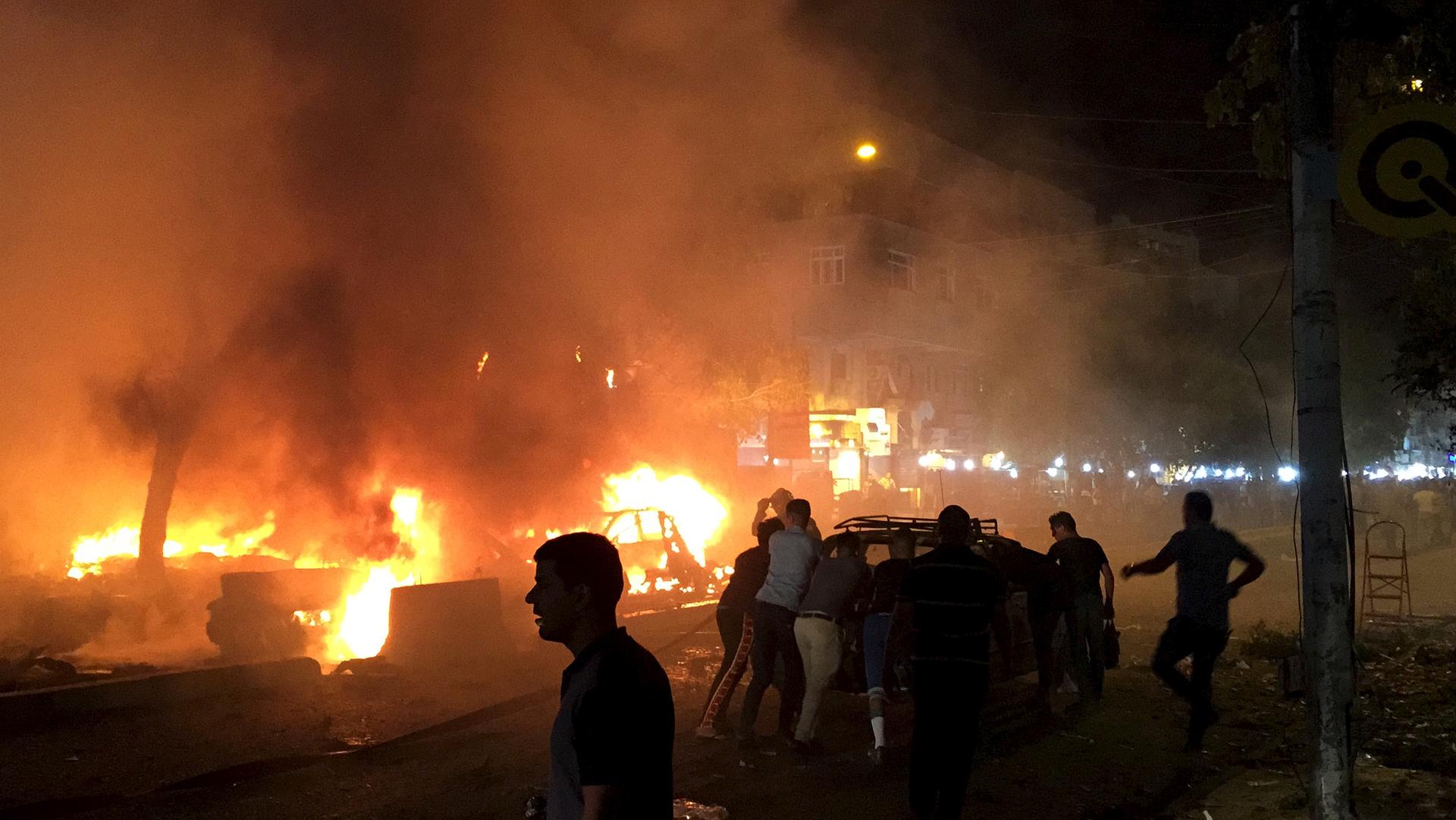The aftermath of a twin car bomb attack in Baghdad, May 2nd 2015. The targets were Shi’ites so suspicion fell on ISIS.
Improvised explosive devices are a key part of the arsenal of the self-proclaimed Islamic State in Iraq and Syria. A report says some are much more sophisticated than others, but all can be made with relatively simple and easily available components.
The group Conflict Armament Research was commissioned by the European Union in July 2014 to investigate how ISIS makes IEDs and where they get the materials.
“In terms of IED construction,” says CAR director James Bevan, “they are actually manufacturing a whole range — from truck bombs, car bombs, items used in suicide bombings — to projected weapons, so for example improvised mortars, and rocket-assisted projectiles. And then things they use defensively; things like landmines, for area denial, and booby traps.”
Bevan says CAR is embedded with groups in Syria and northern Iraq.
"Every time groups there overrun an Islamic State workshop or position," he says, "we document whatever weapons, ammunition and related materials are there.”
A lot of detonators used by ISIS are captured from Syrian government forces on the battlefield. But even those are purchased indirectly from manufacturers in India. And, Bevans says, most of the explosives' parts are legally traded on the civilian market.
“Fertilizers, for example," he says. "In Western countries, because this is known, they are quite heavily regulated, which makes them traceable. This is not the case in the [Middle East]. The distributors clearly do not have adequate records of who they have supplied these materials to.”
Bevan's report has a caveat: that it doesn't imply the countries where IED components originate are working with ISIS.
Erika Solomon, Middle East correspondent for the Financial Times, has done plenty of her own reporting on ISIS' weapons-supply routes over the past year. She says along the Turkish border, and they provide a lot of the materials for explosives.
She’s investigated some of these small traders.
“There are these very small-time businessmen who have deals, basically, with ISIS," she says. "I don’t know if they are sympathizers. Some of them are. Some may be doing it purely for business.”
It might not always be in the open, though.
"Basically this man ostensibly had an office where he just exchanged money," Solomon says. "But actually what he was also doing … was taking in large sums of cash, and then his employees found out that he was then going and buying large quantities of fertilizer and aluminium poles and metal and that kind of thing, which are basic elements of the IEDs."
Every day, reporters and producers at The World are hard at work bringing you human-centered news from across the globe. But we can’t do it without you. We need your support to ensure we can continue this work for another year.
Make a gift today, and you’ll help us unlock a matching gift of $67,000!
